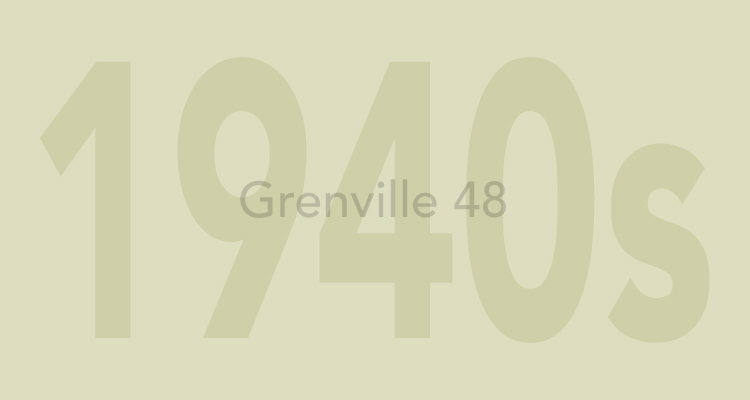13 January 1930 – 31 August 2021
Uncle Johnny was a loveable man and a loving one too. His go-to attitude to life was joyful and he embraced life with a happy disposition. It was not like him to be quiet and withdrawn. He was not a troublemaker. He was very much a peace maker and a peaceful person. He hated aggression and abhorred war. He was one of those rare men who was very patient and took time with people from all walks of life. Above all he was kind and caring and took trouble to care for others. There was a goodness in his purpose towards others. He enjoyed being hospitable and not just for his own benefit. He would go out of his way to entertain in the true meaning of that word. If you made his acquaintance, you would quickly discover his loyalty and faithfulness in friendship. There was a noticeable gentleness in his dealings with others and he often demonstrated self-control where others might react more aggressively.
Aldwick Place was home to Johnny and his family. Set in 13-acres it included several features such as a sunken garden and a nine-hole golf course. There were thatched buildings housing a squash court come pavilion and a gymnasium. The garden had numerous ponds and water features, a tennis court, kitchen garden and greenhouse and beyond that, a backdrop of woodland. To Johnny, it was a heavenly place located next to the sea and a playground like no other.
Uncle Johnny‘s schooling quickly turned into an educational ‘hors d‘oeuvre’. His first school, Queensway, was not a great success; apparently, he only lasted one day! After that it was a Governess whom he called Iddy, who taught him at home for about two years. There followed a succession of home schooling and schools up until my grandfather‘s death in 1939. After that he was sent to Windlesham House School in Findon in Sussex until that was relocated during the war. Then it was back to home schooling by the farm secretary before he was sent to another local School in Bognor. He took his Common Entrance in 1943 and was sent to Stowe in January 1944.
Although he enjoyed Stowe, he didn’t get off to a good start. Being wartime, no lights or torches were permitted on the night train that took him from London to Stowe. It was a traumatic journey for someone whose life experience to that point had been very home centred. Matters got worse when it was discovered his suitcase had got lost in London. So, for three weeks he was the only boy at school who had nothing but a suit when the rest of the pupils were wearing blazer and trousers. The combination of being away from home and going through these trials made him a nervous wreck.
During his time at Stowe the doctor detected a heart murmur. A heart specialist in London confirmed the diagnosis and sent him back to Stowe with strict instructions not to play games. On games days he was allowed to wander at will in the beautiful grounds of Stowe gaining an appreciation for the Georgian period. However, he did have to join the Combined Cadet Force but once the war was over, he was very glad to leave “all that marching about” which he didn‘t care too much for.
After Stowe he went to a crammer for a while and then it was time for his National Service but the heart murmur prevented him from joining. Having left his education behind him, the next step was the family flour milling business. He was apprenticed to learn the ropes but he found the whole thing intensely boring until he discovered the Registration Department where details of share dealings were recorded but alas, he was not allowed to stop there.
His interest in the arts and the Georgian period led him into many other ventures, such as Pallant House where he was a founding supporter as well as the Oxmarket Centre of Arts which he helped establish. His other interests extended to the Prayer Book Society of which his nephew Johnny Scrivener was a prominent Director. He was a life member of the Georgian Group and a founding member of the Regency Society of Brighton and Hove. His love of theatre and music brought him into contact with the New Chichester Festival Theatre where he was a Trustee.
Uncle Johnny had an extraordinary ability to relate to ordinary people and he was a loyal support to all who worked for him. He was also a very shrewd investor and had an excellent grasp of the Stock Market and the Property Market. He never took pleasure in the approbation of others. He held no qualifications, not even his Common Entrance. No A-Levels, no university degree, no profession and no frills. But one thing he did receive, and in which he permitted himself a great deal of justifiable pride, was a Civic Award from Chichester in 2015. This simple award recognised formally what he had quietly achieved and the key role he had played in establishing some of the enduring attractions which Chichester is well known for today. He took no pleasure in blowing his own trumpet. But I hope this account of the life of a man who has been described by many as “a True Gentleman”, does it for him.
At the end of his life, I think Uncle Johnny understood what was happening to him and dreaded the protracted illnesses that so many of his family had endured. He loathed the idea of being a burden to anyone. His sudden passing was, in effect, a great mercy.
Extract from the Eulogy from John’s Niece

